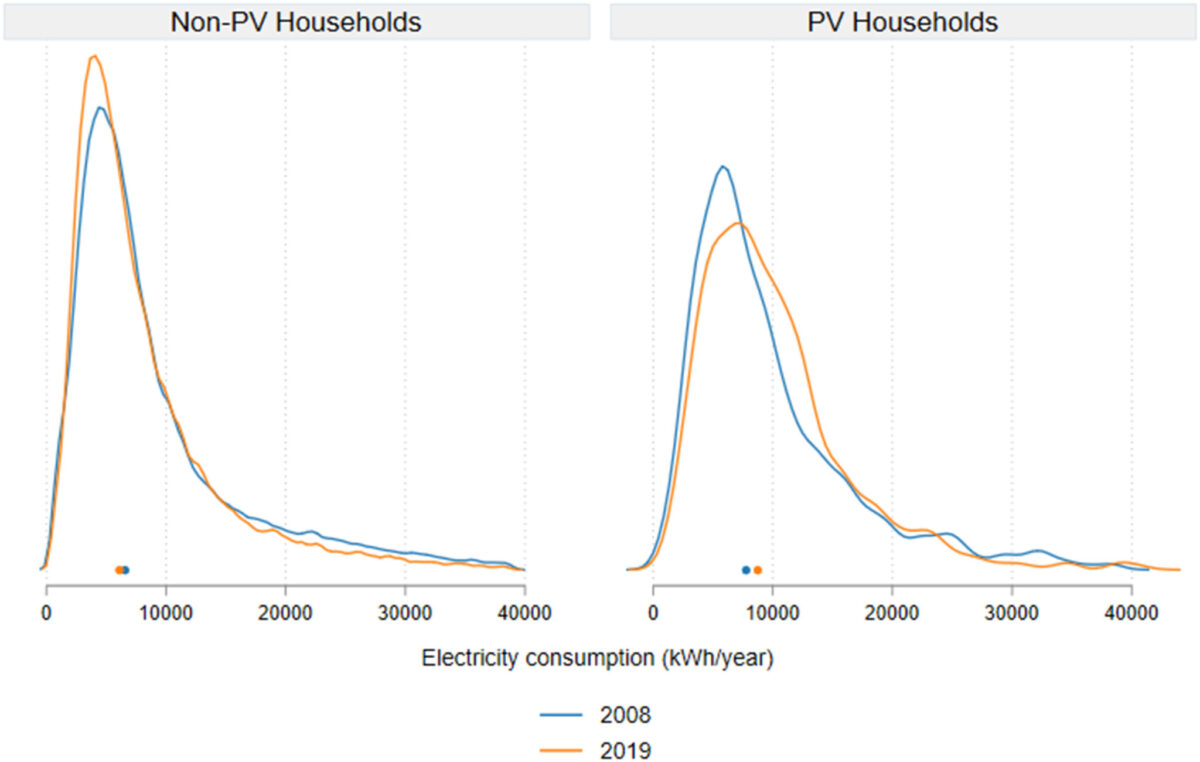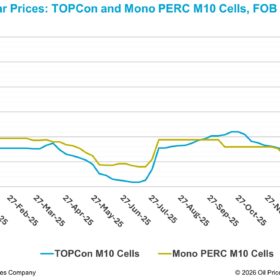New research from the University of Bern in Switzerland has demonstrated that the installation of a residential rooftop PV system could increase a household’s power consumption by up to 11%.
The research work analyzed the impact of the so-called rebound effect, which consists of a reduction in expected gains from a more resource-efficient technology as a result of behavioral or systemic change. As for residential solar, this effect equals the change in a household’s electricity consumption resulting from PV power generation.
“This is not the first study that investigates the solar rebound effect – there are various studies that illustrate the concept for different contexts,” said researcher Patrick Biegler. “The main feature of my approach is that I can control for the co-adoption of energy-intensive goods together with solar. For example, I can illustrate that part of the higher consumption after adopting solar is explained by also purchasing an electric car or similar electricity-intensive goods. This shows that a solar rebound is not necessarily negative or wasteful.”
In the paper “Magnitude and decomposition of the solar rebound: Evidence from Swiss households,” published in the Journal of Environmental Economics and Management, Biegler explained his analysis was based on annual electricity consumption data and detailed household-level information taken on 58,104 single-family home residents in the Canton of Bern, Switzerland, between 2008 and 2019.
He also used a supervised machine learning (ML) model using regularized gradient boosting to measure “unobserved counterfactual” electricity consumption for solar PV households, with the analysis taking into account the annual electricity consumption, solar PV ownership, peak power capability, electricity product choice, electricity price, solar PV remuneration, and solar PV electricity fed into the grid from local utility BKW.
Through this analysis, Biegler found that average consumption tends to remain largely unchanged among non-adopting households, while solar PV adopters tend to begin consuming more power immediately in the post-adoption period. “I estimate a solar rebound effect ranging between 7.9 % and 11.1 %,” he stated. “The evidence suggests that the rebound effect is primarily price-driven, as proxies for both income effects and behavioral responses such as moral licensing indicate relatively minor contributions.”
The researcher also found that the rebound effect is mainly driven by the high capacity of the residential PV systems considered in the study, whose average is around 8 kW. “These adopters react stronger to large solar PV yields,” he said, noting that households resorting to storage tend to exhibit relatively lower rebound effects.
“Solar rebound effects tend to be perceived negatively and are often cited as arguments against subsidy programs,” he concluded. “However, my findings suggest that parts of the solar rebound effects might stem from households further electrifying their heating and transportation modes.”
“At the moment there are no plans to expand further into different segments, as the institutional setting is slightly more complex with commercial and industrial solar owners in Switzerland,” Biegler added. “I know of few studies that are doing similar inquiries into industrial adopters in Germany and Uruguay though.”
In February, researchers from Australia and Vietnam published the results of a research work on the short and long-term dynamics of the rebound effect. This paper showed that residential solar installations can increase a household’s total electricity demand by approximately 16.3% compared to non-solar households
This content is protected by copyright and may not be reused. If you want to cooperate with us and would like to reuse some of our content, please contact: editors@pv-magazine.com.









By submitting this form you agree to pv magazine using your data for the purposes of publishing your comment.
Your personal data will only be disclosed or otherwise transmitted to third parties for the purposes of spam filtering or if this is necessary for technical maintenance of the website. Any other transfer to third parties will not take place unless this is justified on the basis of applicable data protection regulations or if pv magazine is legally obliged to do so.
You may revoke this consent at any time with effect for the future, in which case your personal data will be deleted immediately. Otherwise, your data will be deleted if pv magazine has processed your request or the purpose of data storage is fulfilled.
Further information on data privacy can be found in our Data Protection Policy.